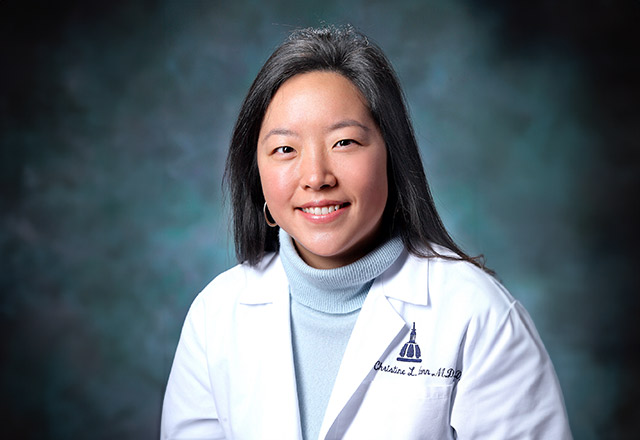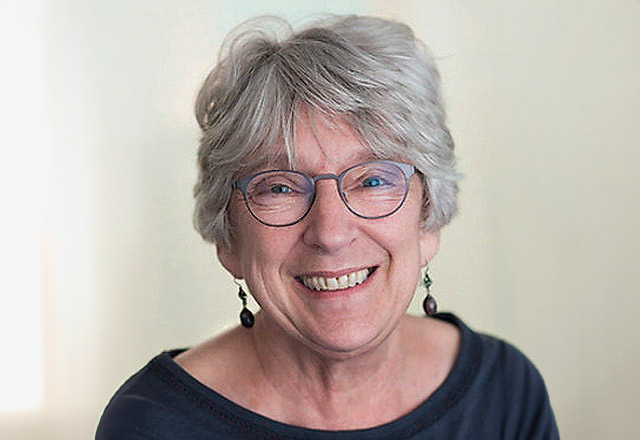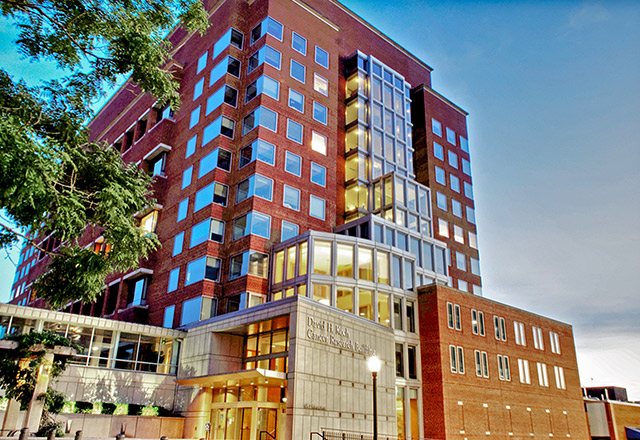Maryland Confronts Cancer
The Maryland Cancer Control Plan, Flight Attendant Medical Research Institute, and Cigarette Restitution Fund

As we reflect on the 50th anniversary of the Kimmel Cancer Center, it is worth noting that the collaborative relationship between State Governors and the Maryland General Assembly and John Hopkins has always existed.
In 1985, we established the Cancer Prevention and Control Program and began a collaboration with the state that continues today and includes leadership positions on the Maryland State Council on Cancer Control and the Maryland Cigarette Restitution Fund. These efforts were targeted to and positively impacted cancer rates and disparities.
In 1989, after learning Maryland and neighboring Washington, D.C., had the highest cancer death rates in the nation, our experts worked with Governor William Donald Schaefer to form the Maryland Cancer Consortium, now called the Maryland State Council on Cancer Control, and in 1991, to establish the first Maryland Cancer Control Plan to address the causes of these high rates.
In 2001, Maryland’s plan was recognized with funding from the U.S. Centers For Disease Control (CDC).
“Maryland’s plan is an example for other states. It is our goal that every state creates similar plans for cancer control and prevention,” said Jim Marks, then-director of chronic disease prevention for the CDC.
The plan is now known as the Maryland Comprehensive Cancer Control Plan, and it is administered by the Maryland Cancer Collaborative, a statewide coalition of volunteers, which over the years has included many Kimmel Cancer Center faculty members. Kimmel Cancer Center Director of Cancer Prevention and Control, Elizabeth Platz, Sc.D., M.P.H., was appointed to the Maryland State Council on Cancer Control and is a Steering Committee member and former Chair of the Maryland Cancer Collaborative. Platz and Otis Brawley, M.D., Bloomberg Distinguish Professor and Director of Community Outreach and Engagement, contributed to the 2021-2025 Maryland Comprehensive Cancer Control Plan.
The Flight Attendant Medical Research Institute
In 1997, a group of flight attendants took on big tobacco. These non-smoking flight attendants were suffering from cancer, emphysema and other smokers’ diseases they believed were caused from years of exposure to secondhand smoke in the cabins of airplanes where they worked.
They fought a class action suit against the US tobacco industry, and we're awarded $300 million in damages. They used the settlement to establish the Flight Attendant Medical Research Institute (FAMRI) to fund research of early detection and treatment of tobacco smoking-related diseases.
 HANN
HANNToday it is difficult to imagine or remember such a time but when these courageous flight attendants waged their heroic fight. Smoking was accepted and common in many public places. Although the connection between smoking and cancer and other diseases had at last been widely accepted, the effects of secondhand smoke were not yet appreciated. They stood bravely before a doubtful public as living proof of the very real dangers of secondhand smoke.
Then unselfishly, they used the money they were awarded to help others and support the science to unequivocally prove the connection between secondhand tobacco smoke and cancer as well as other diseases. FAMRI-funded research has been the impetus for cities in 25 countries, including the U.S., to adopt no smoking policies.
At the Kimmel Cancer Center, FAMRI-supported research spanned from basic molecular mechanistic work to clinical research to population studies of tobacco related disease.
 KANAREK
KANAREKJohns Hopkins investigators funded by FAMRI included Shyam Biswal, M.D., Christin Hann, M.D., Ana Navas-Acien, M.D., Ph.D., David Sidransky, M.D., and Cynthia Zahnow, Ph.D. As a result of FAMRI support, these researchers deciphered the cellular causes of tobacco smoke related cancers and helped develop new tobacco policies.
In appreciation of the Flight Attendant Medical Institute, the FAMRI courtyard and fountain was installed at the construction of the David Koch Cancer Research Building.
 DAVID H. KOCH CANCER RESEARCH BUILDING
DAVID H. KOCH CANCER RESEARCH BUILDINGMaryland Cigarette Restitution Fund
In 1998, 52 state and territory attorneys general signed the Master Settlement Agreement with the four largest U.S. tobacco companies to settle dozens of lawsuits brought to recover billions of dollars in health care costs associated with treating smoking-related illnesses. We worked with then Governor Parris N. Glendening and the General Assembly to establish the Maryland Cigarette Restitution Fund (CRF).
Maryland was unique, named by the U.S. Congress as a national model. As most states engaged in lengthy battles over how to use the funds, Maryland got to work, investing its settlement funds to fight cancer—particularly seven CRF-targeted cancers: breast, cervical, colorectal, lung, melanoma, oral and prostate cancers, with a specific focus toward minority and underserved populations. Johns Hopkins investigators leveraged their grants, earning research funding and other support more than ten times the CRF investment.
Sidney Kimmel, the Cancer Center’s benefactor, cited the partnership between the Cancer Center and the State of Maryland to use the CRF to finance cancer research as one of the things that influenced him to make his historic $150 million gift in 2001.
Kimmel Cancer Center Director William Nelson, M.D., Ph.D., and John Groopman, Ph.D., co-director of Cancer Prevention and Control and Professor of Preventive Medicine, are co-directors of the Maryland Cigarette Restitution Fund at Johns Hopkins, and Norma Kanarek, Ph.D., administers the grant.
To date, the CRF has funded 166 grants, totalling nearly $145 million.
The state’s commitment to combatting cancer and years of dedicated CRF-support helped move our state from leading the U.S. in cancer deaths to 34th in the nation, and as we continue to work together, we will realize even more opportunities for unprecedented progress against cancer for all Marylanders.
